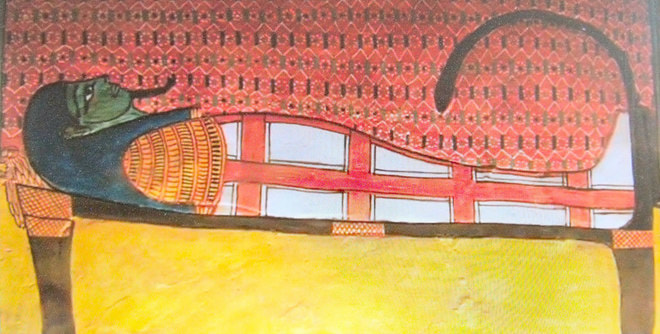This woman was right about one thing, it turned out: the Bible does document outrageous lifespans, such as 969 years for Methuselah and 950 for Noah. But everything went rapidly downhill from there, the Bible seems to indicate, presumably because genetic mutations had begun their relentless process of deadly accumulation.
So who’s right, my friend or the Bible? Is there any evidence that we’re really living longer these days? Or have we actually lost longevity ground over the centuries? Is it possible that evolution isn’t doing anything to extend our lives? That modern medicine is, at best, keeping us in a holding pattern?
These are significant questions – so significant that I’ve researched the subject now and then over the years. And what do you know: It seems that today’s “ripe old ages” are really nothing new.
Consider how long these famous people lived:
- Third Egyptian pharaoh Ramses II, 1303–1213 BC: 90 years
- Spiritual leader Lord Buddha, c. 563–483 BC: 80 years
- Greek philosopher and educator Plato, 424– 348 BC: 76 years
- Early theologian Saint Augustine, 354 –430: 76 years
- France’s first queen, Eleanor of Aquitaine, 1122-1204: 82 years
- Italian painter and sculptor Donatello, 1386-1466: 80 years
- Italian sculptor, painter and architect Michelangelo, 1475 – 1564: 89 years
- Italian astronomer and physicist Galileo, 1564 - 1642: 78 years
- English mathematician and scientist Sir Isaac Newton, 1642-1727: 85 years
- French philosopher Voltaire, 1694 – 1778: 84 years
- Samuel Adams, 1722 – 1803: 81 years
- German philosopher Immanuel Kant, 1724 –1804: 80 years
- Thomas Jefferson, 1743-1826: 83 years
- Russian author Leo Tolstoy, 1828 – 1910: 82 years
Interestingly, those who document these vast ages never seem to comment on their subjects’ longevity. How come? If most ancients really dropped like flies in young adulthood, wouldn’t you think someone would exclaim over those who slipped through the early-death cracks?
Instead, such comments seem to be limited to comparisons of today with the 18th and 19th centuries -- centuries when, we are told, people only lived from 35 to 45 years. The underlying message: Aren’t we children of the 20th and 21st centuries absolutely amazing to have so vastly extended human lifespans?
But apparently we have not done so. Apparently, like every other historical fact ever uncovered, dates such as those above confirm the biblical record.
Doesn’t this suggest the wisdom of considering what the Bible has to say about what happens after we close the book on our earthly lives?

 RSS Feed
RSS Feed